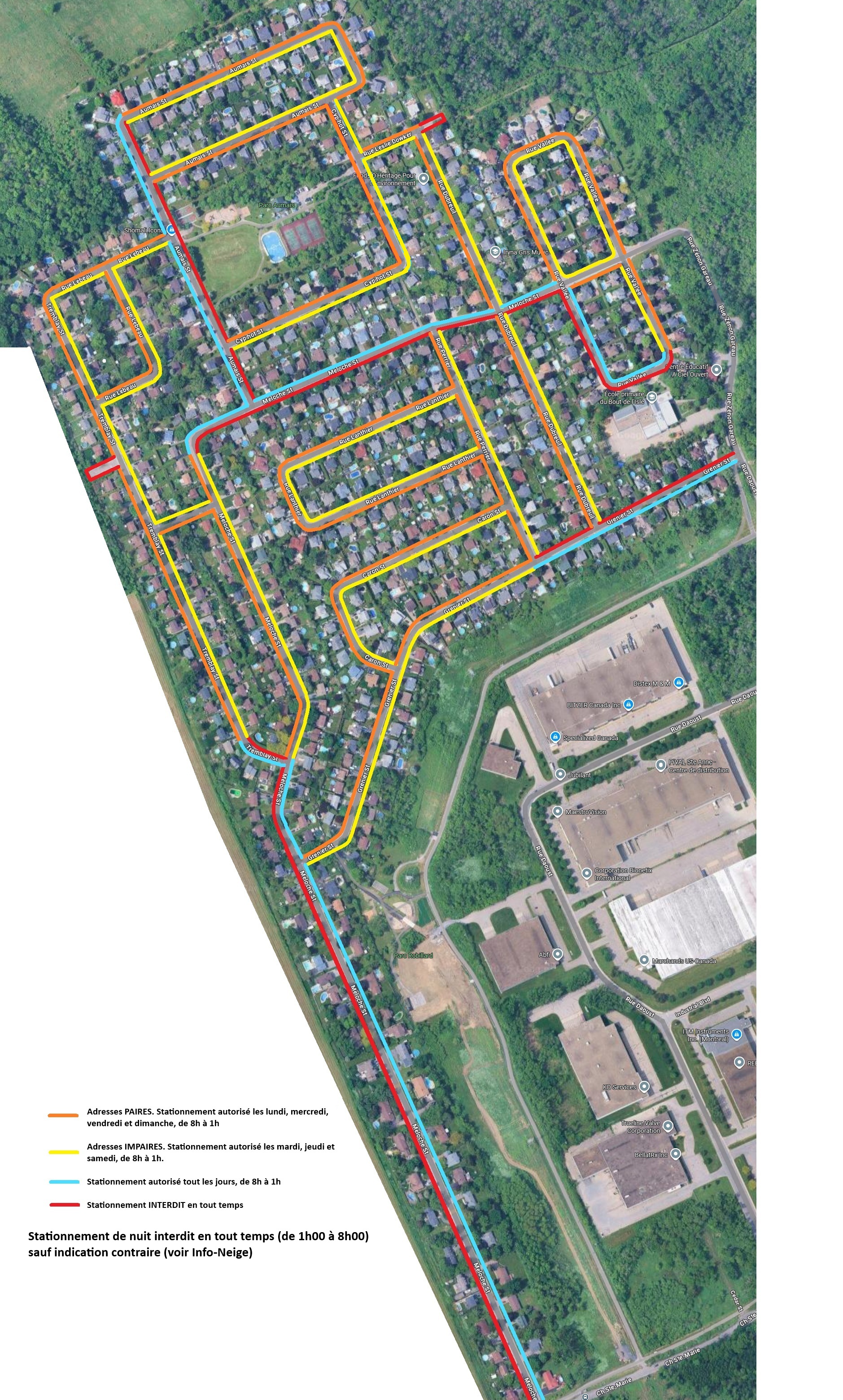Info-neige |
2025-12-27
Stationnement de nuit - PERMIS ✅ du 27 au 28 décembre |
|
2025-12-01
Quand le stationnement de nuit est-il permis dans le secteur nord ? |
|
Info-collectes |
2025-12-17
Horaire des collectes pendant le temps des fêtesLa Ville vous invite à consultez l’horaire des collectes pendant le temps des fêtes.
|
|
2025-12-15
Consultez le calendrier des collectes 2026 |

Accueil
>








